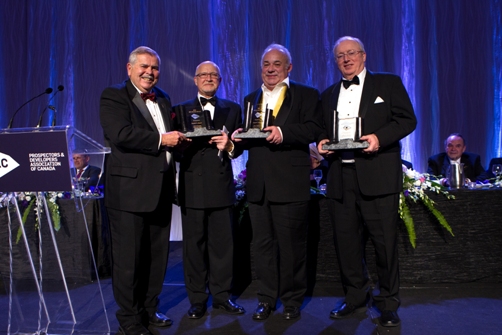Toronto – April 14, 2016 – HARTE GOLD CORP. (“Harte Gold”) (TSX: HRT / OTC: HRTFF / Frankfurt (FSE: H4O) Harte Gold announced today that it has begun shipping bulk sample ore to Barrick Gold Inc.’s Hemlo Mill for processing and has retained Crone Geophysics and Exploration Ltd. to conduct a deep geophysical survey to be followed by a 5,000 m drill program.
First Ore Shipments
Harte Gold is pleased to report that it has begun shipping bulk sample ore to Barrick Gold Corp. for processing at the Hemlo Mill. The shipments are part of Harte Gold’s 70,000 tonne advanced exploration bulk sample at the Sugar Zone property in northern Ontario. The Bulk Sample is on budget and on schedule, with completion expected prior to the end of the current year.



























